5. Carnage (Roman Polanski, 2011)
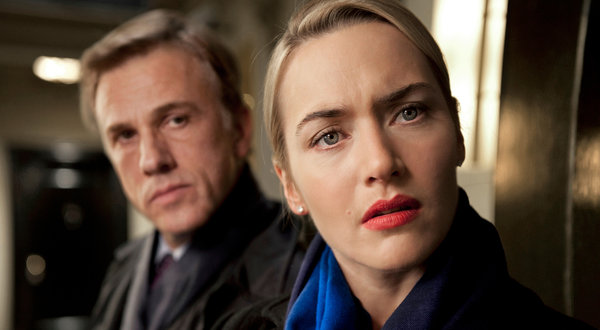
Roman Polanski’s utterly brilliant dark comedy Carnage is all set in the same small place – an apartment – and focused on the same four characters.
The film’s reliance on its actors is, therefore, absolutely essential, and we imagine that’s why Polanski got these four masterful thespians to do the work: Jodie Foster, John C. Reilly, Christoph Waltz and our girl Winslet. They’re the heart and soul of this devilish smart study about the social constructs that constitute adulthood and civilization in general, and the mean and violent streak underneath it all.
As two couples discuss what to do when one of their children’s beats the other in a school incident, the actors achieve a downward spiral as entertaining as it is dreadful to look at.
Winslet is especially good among them as the stressed-out mom of the aggressor kid, pairing with the workaholic played by Waltz with tongue firmly in cheek. Her honest and intense portrayal never loses sight of the satire that’s in the heart of the film, but there’s also truth and tragedy underneath it as her character falls apart at the seams.
4. Revolutionary Road (Sam Mendes, 2008)
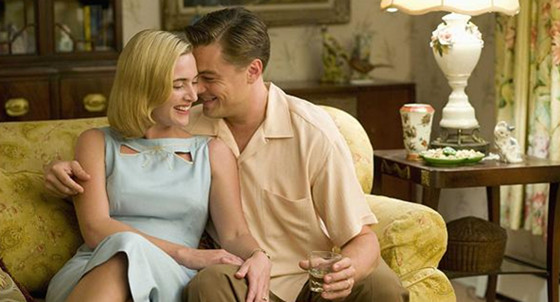
This stellar yet somewhat underrated onscreen reunion of the Titanic couple serves as an adaptation of a Richard Yates novel detailing the tragedies of adult life in America in the post-WWII environment.
Young couple April and Frank Wheeler are well into the first decade of their marriage when they realize they need a change from the suburban lifestyle they live in Connecticut while Frank commutes to New York for a job he doesn’t care for. April is also unsatisfied as a housewife, so she proposes that they move to Paris so that Frank can find what his real passion is while she works as a secretary somewhere.
Winslet and DiCaprio’s chemistry is still here in an equally doomed, equally tragic story, but they both show up in a more subdued tone, aged and matured into much subtler actors. The 1950s housewife role she would later reprise in TV’s Mildred Pierce becomes striking in Winslet’s particular interpretation of it.
3. The Reader (Stephen Daldry, 2008)
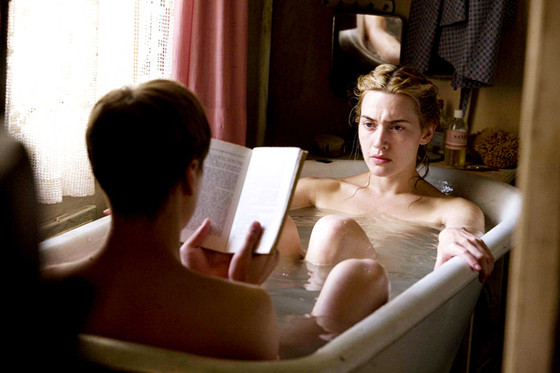
The role that finally got her the Oscar was Nazi collaborator Hanna Schmitz in Stephen Daldry’s irregular adaptation of Bernhard Schlink’s book, a time-hopping fable about a generation taking on and correcting the moral principles and sins of another, reflected in the love affair between young Michael Berg and older Hanna. She doesn’t know how to read, and loves to be read to and their relationship becomes one of wonder for the stories he tells her and the physical bond they make.
Winslet’s performance is a defiant one, constructing a complex and tridimensional human being with regrets, excuses and hypocrisies, and then daring us to judge her. She’s truly the heart and the reason why The Reader ultimately works as a message and as a movie, and that Oscar was, obviously, richly deserved.
2. Little Children (Todd Field, 2006)
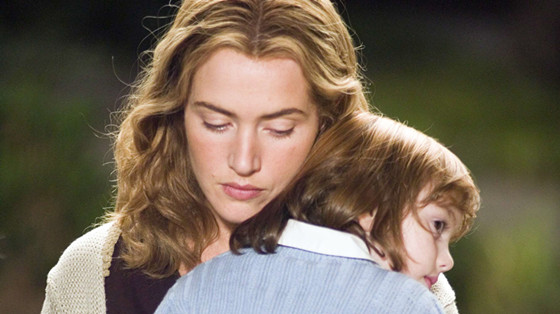
Writer/director Todd Field made his debut with the unyielding suburban drama In The Bedroom, so it was not that much of a shock when, five years later, he delivered Little Children, the adaptation of a Tom Perrotta novel about a bored housewife meeting a bored househusband while, in the same neighborhood, an ex-con and pedophile and an ex-cop wage a cold war of who’s kicking who out.
It’s a startlingly great and current affair, and all the actors take the chance to deliver lived-in, urgent performances largely based on urges and frustrations of contemporary life.
Winslet is chief among them, of course, transporting her housewife routine to a modern setting (her character’s surname is Pierce, because of course it is) in vibrant colors, allowing a cynical and disappointed woman to come to life on the screen in a way that sets the whole of the movie on fire with her.
1. Eternal Sunshine of the Spotless Mind (Michel Gondry, 2004)
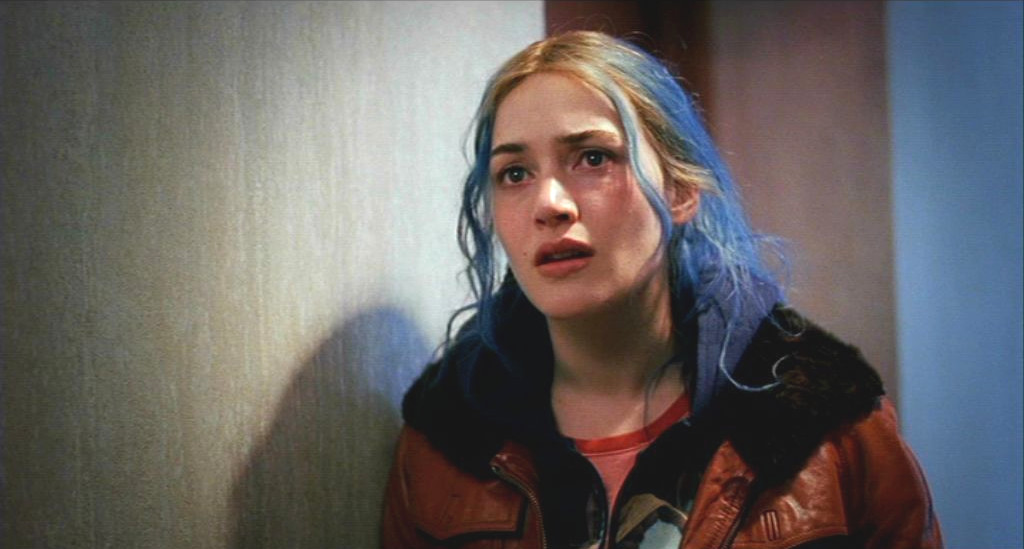
Michel Gondry’s film will be remembered as a classic of our times in the decades to come, an eccentric and deep love story combined with a powerful reflection on memory, disappointment and heartbreak.
The story of a couple who meets, falls in love and later breaks up because they want and feel different things, Eternal Sunshine of a Spotless Mind in a Charli Kaufman gem that presents both brokenhearted lovers the possibility of completely erasing the other from their memories, and watches what happens when they do.
As the unforgettably blue-haired Clementine, Winslet strips herself naked of her usual ballsy persona and settles for a more enigmatic, sweetly conceived independence and vitality while also playing a woman whose soul gets crushed every time she falls in love. A quiet, romantic resignation emanates from Clementine, and Winslet’s steely eyes let vulnerability and heart fill the character when she’s onscreen.
Author Bio: Caio Coletti is a Brazilian-born journalist, a proud poptimist, and has too many opinions to keep them all to himself.